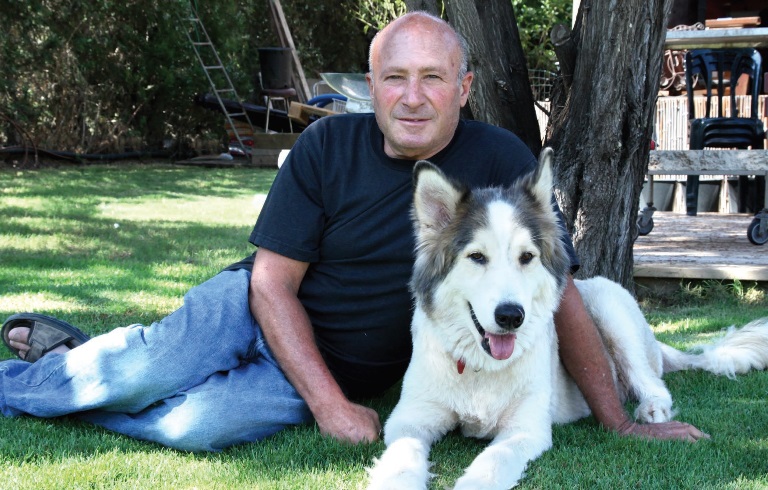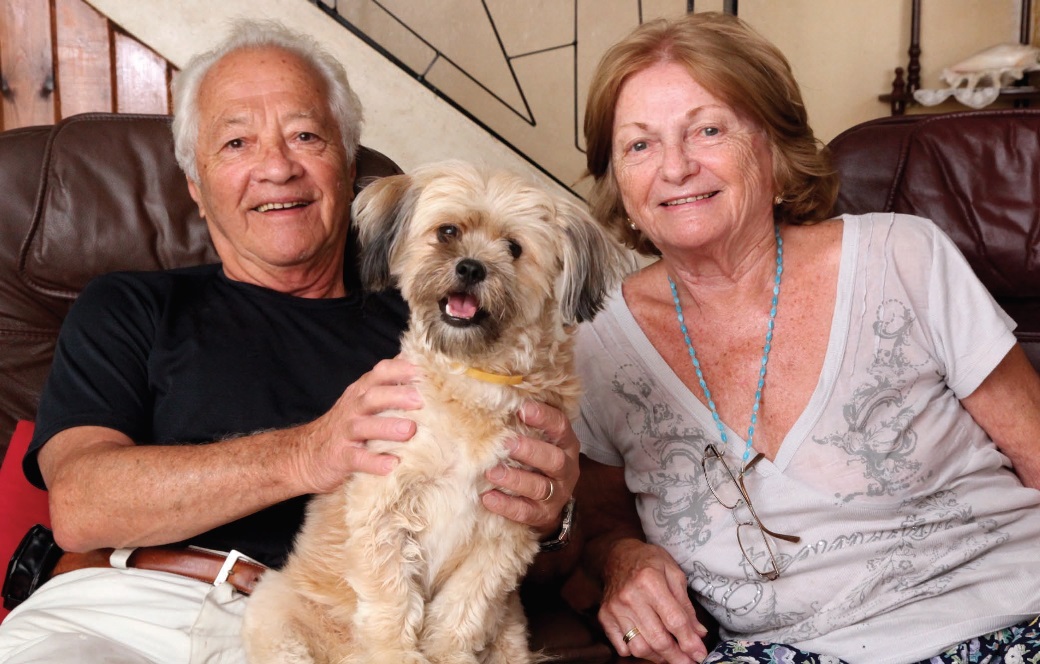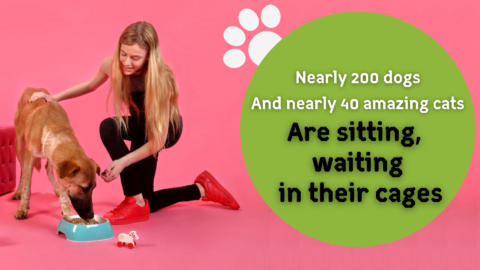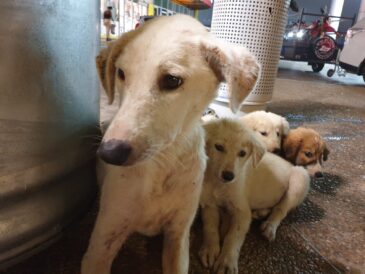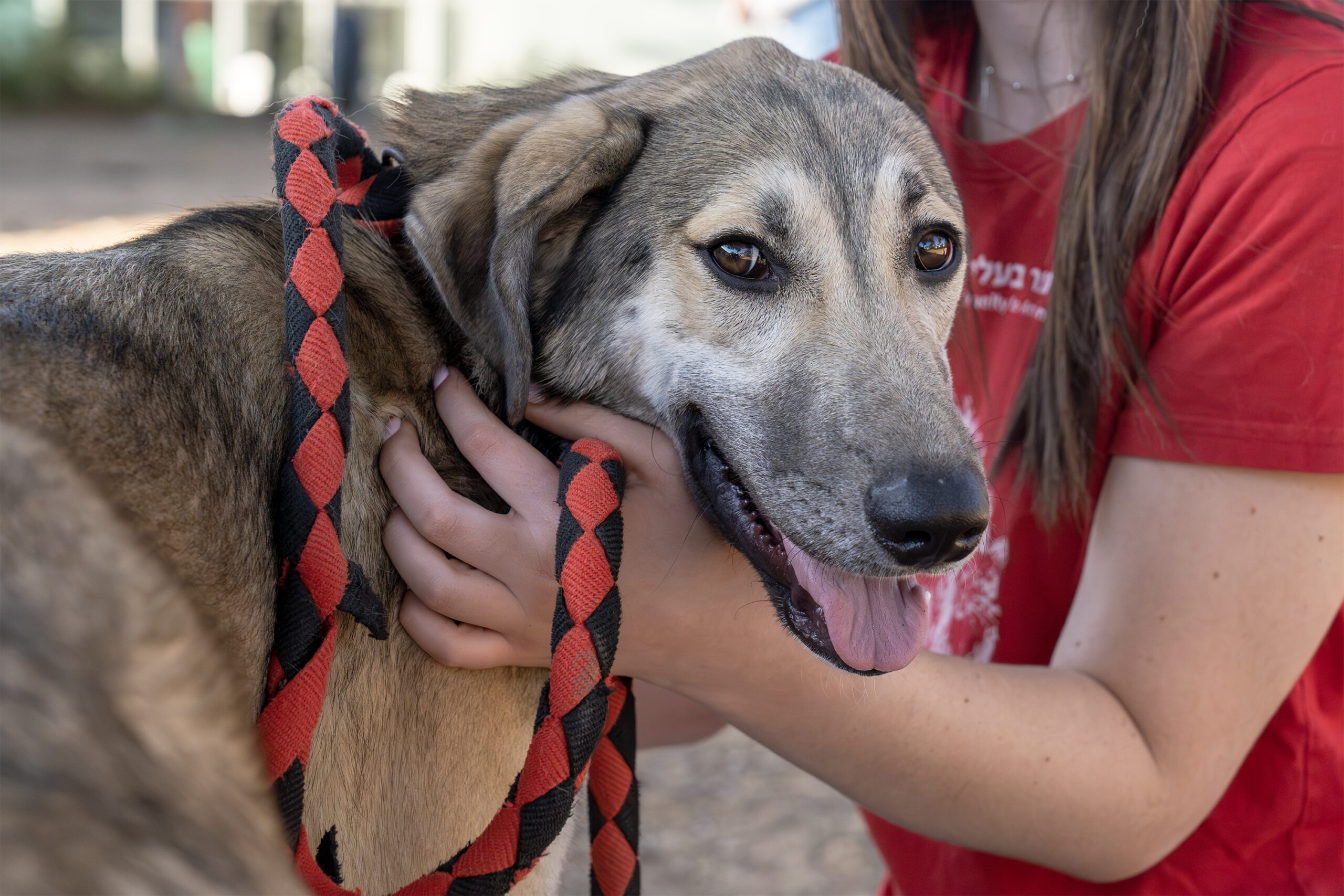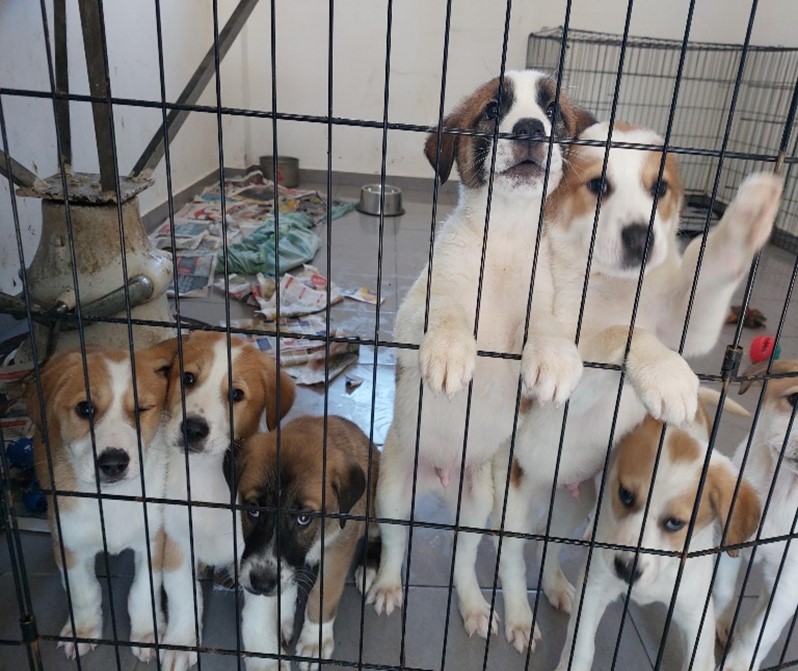Tirtza Levy and her beloved dog Lucky, Tova Tzabar and Luko with the lion’s mane hairstyle, and Eva and George Komlush, hugging their adorable terrier, Pippi, are just some of the “Guys and Girls of the Month”, whose photos decorate the new SPCA calendar. Publication of the calendar has become a tradition, focusing each year on a specific topic dedicated to the welfare of animals in Israel.
The two-legged models are all of the golden age generation who opened their hearts to welcome a new friend for life. The four-legged friends are all dogs and cats who were adopted from the Society, finding love, warm homes and a helping hand from these kind people.
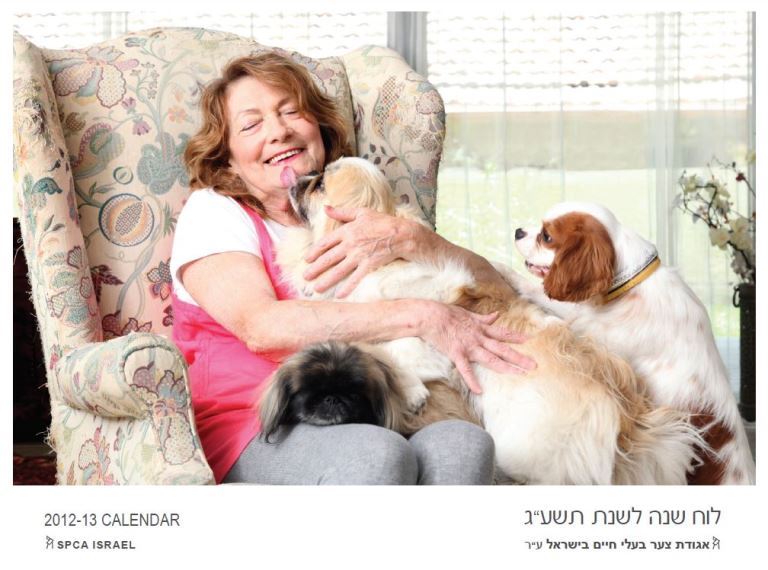
According to Hilma Shmoshkovitz, the Chairperson of the Society for Prevention of Cruelty to Animals in Israel: “The Society, now in its 85th year of activity, has always maintained warm ties with senior citizens; some of them, like those photographed in the calendar, adopted animals from the Society, coming from time to time to the clinic for vaccinations and other treatment, others volunteer in a variety of spheres and contribute their time and know-how for the benefit of the animals while many others take part in the special activities run by the Society’s Department for Humanistic Education in old-age homes, day centers and protected residential complexes”.
The beautiful calendar will be sent to all contributing over NIS40, supply allowing. Contributions can be made through our website or by phone *4553 (NIS 50 additional cost for overseas deliveries).
The calendar, produced with the generous assistance of Excellence Nessuah Investment House, Y. Hazenvald – Insurance Agency, Mercantile Discount Bank, and Dr. Alice Naumoff-Raban, spotlights the subject of the special bond between members of the golden age generation and their pets.
Numerous studies have shown the wide-ranging consequences for the elderly of raising pets or just spending time in their company, including improved physical and emotional health, alleviation of loneliness, a sense of optimism and high self-esteem, increased physical activity and forming of social connections, – in short, overall improved quality of life. Research carried out in Australia demonstrates how the presence of pets during the transition to protected residential facilities has great importance in the enhancing of emotional welfare and the social adaptation ability of the new residents. Dogs trained for this purpose can also help disabled elderly people in their physiotherapy. Senior citizens can benefit from a relationship with animals, even if they do not raise pets themselves and just connect with them in neighborhood parks, at others’ homes or during organized activities.
The above indicates the importance of raising public awareness of this topic, to encourage those elderly who are so inclined to raise pets or to spend time in the company of animals, to help them with the care of their pets whenever necessary and to encourage homes for the elderly to allow residents to keep pets.
For viewing the calendar Click here.
